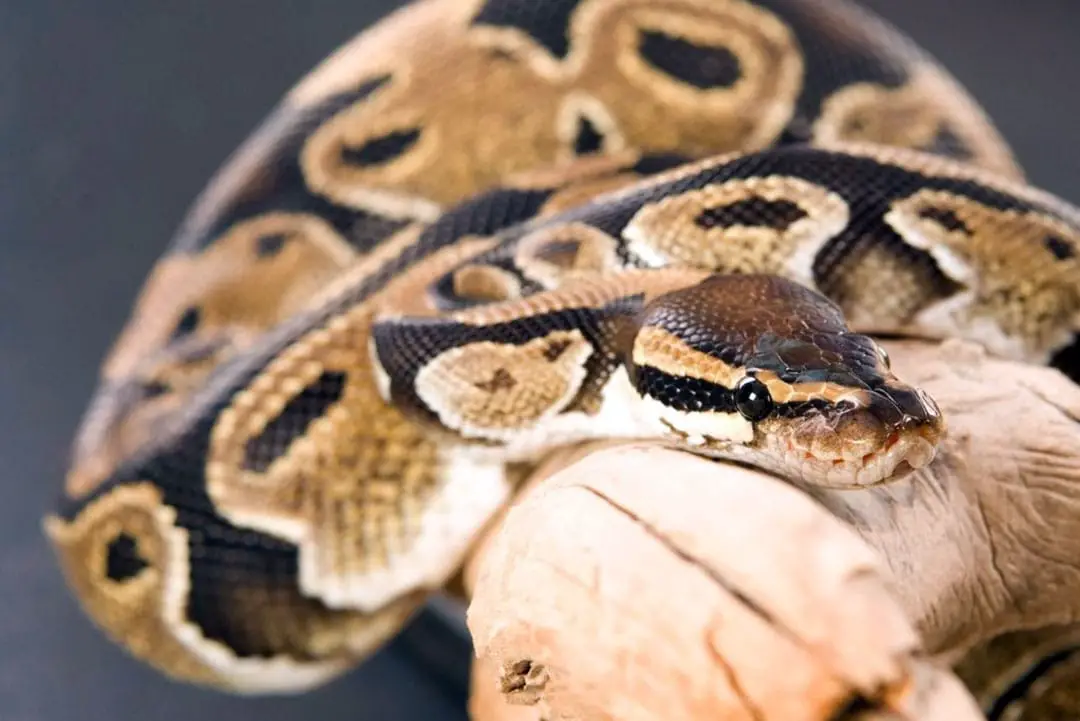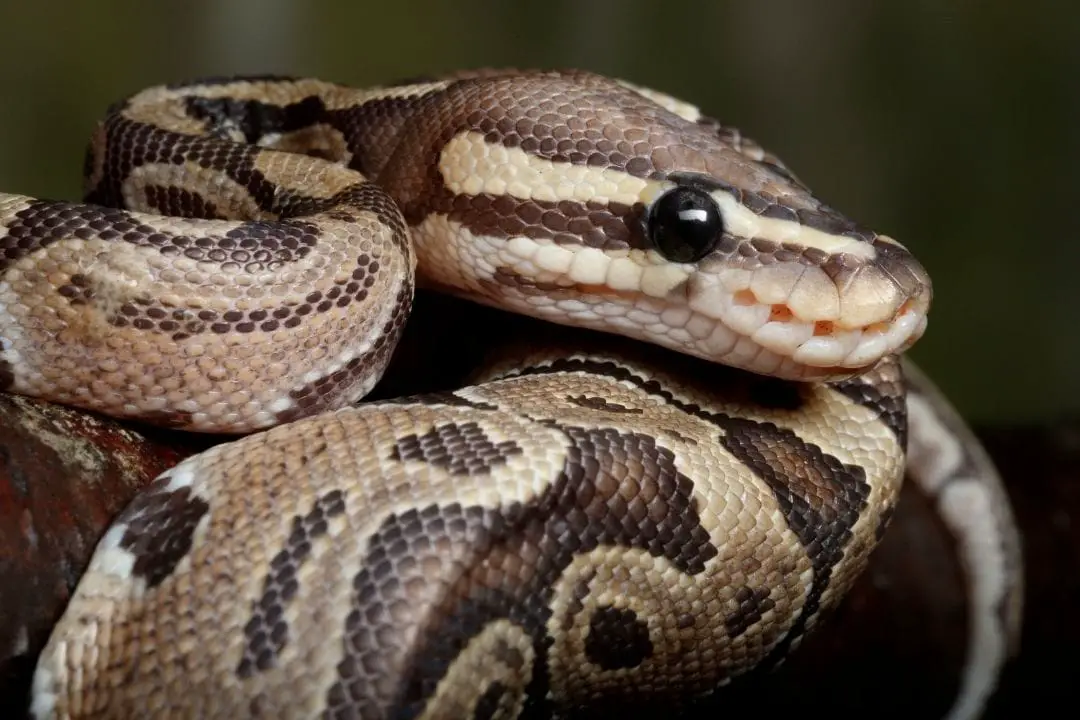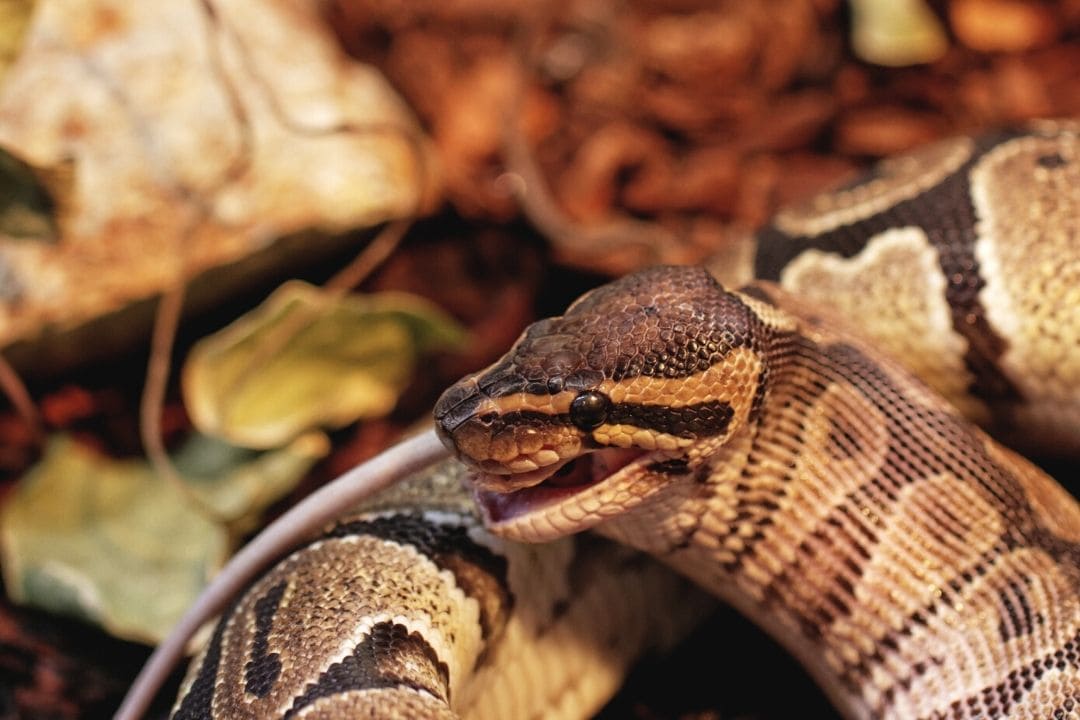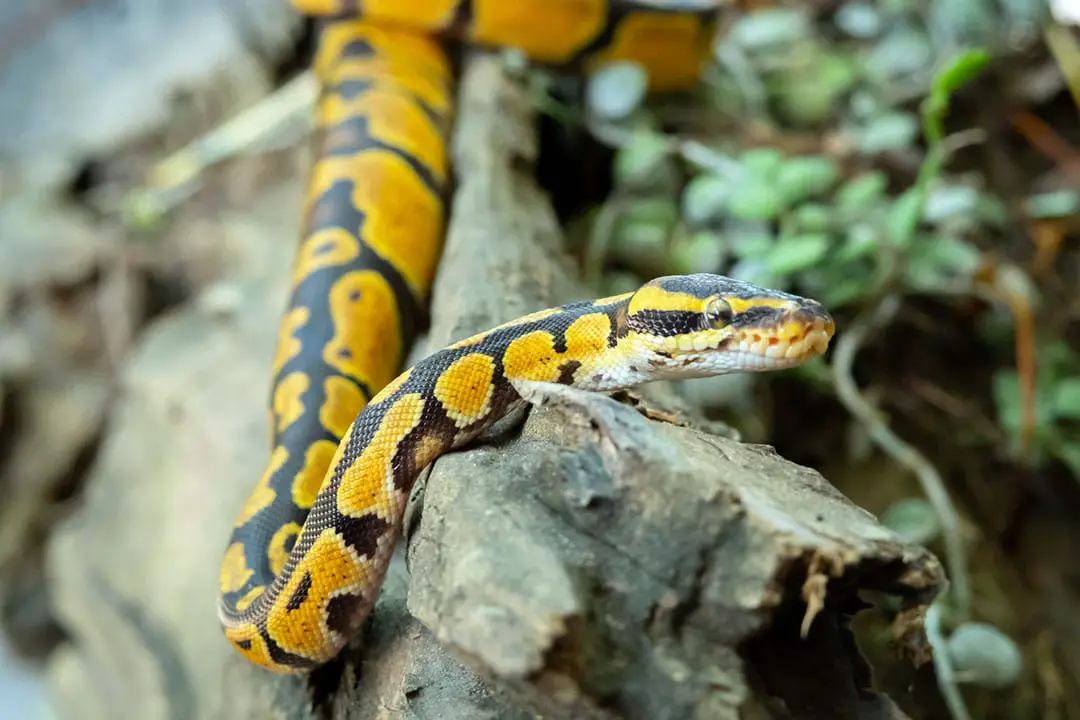Ball pythons (Python regius) are African snakes that are popular in the pet trade.
Understanding how long a potential pet may live is important so you know how much time you need to commit to your pet. Snakes as a whole live much longer than typical mammalian pets.
How long do ball pythons live?
On average, ball pythons live for between 20-30 years in captivity. A male at The Philadelphia Zoo lived to be 47 years old. This means your pet will be with you for decades to come. Ball pythons are one of the longest-lived snakes in the pet trade.
Lifespan
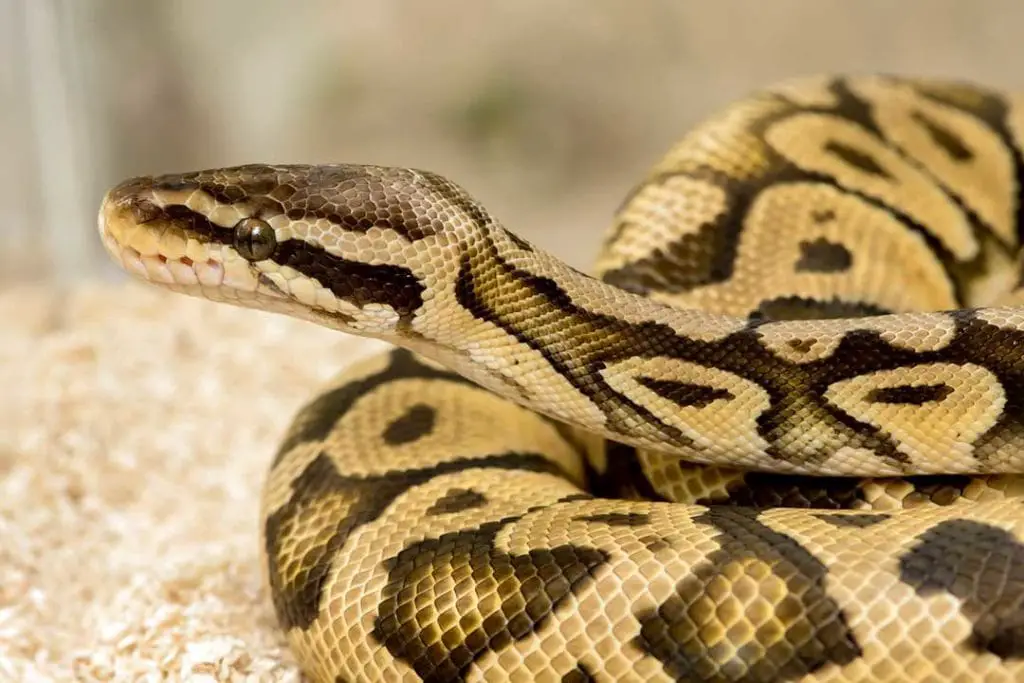
Everything you need to know about caring for Ball Pythons in captivity:
Read our Ball Python Care Sheet (Complete Setup & Guide)
Ball pythons live very long lives in captivity. In the wild, these snakes face predation, starvation, and poor weather. Humans are also a threat since ball pythons are a minor food source in some parts of their range. This means that many snakes don’t live for a very long time.
Older animals will slow down, and these snakes are already slow even when young. A captive snake doesn’t face these pressures.
They have steady heat, humidity, food, and even access to veterinary care that can extend their lives.
A ball python that has been injured by prey in the wild may succumb to an infected wound, but this isn’t an issue in captivity.
Not only are most ball pythons fed pre-killed food to avoid injury, but any wounds will be treated by the owner or a vet. If the snake does get sick, the owner will take the pet in for care.
This means that these snakes will live for much longer. A well-cared-for ball python will live to be between 20 and 30 years old. Older snakes have been known.
The base knowledge for proper snake care increases every year. Once upon a time, a tiny box was considered fine for a ball python.
Now we know that they need space to stay healthy. Studies on these snakes reveal everything from basic care requirements to veterinary advancements to help keep ball pythons healthier for longer.
What Affects Longevity
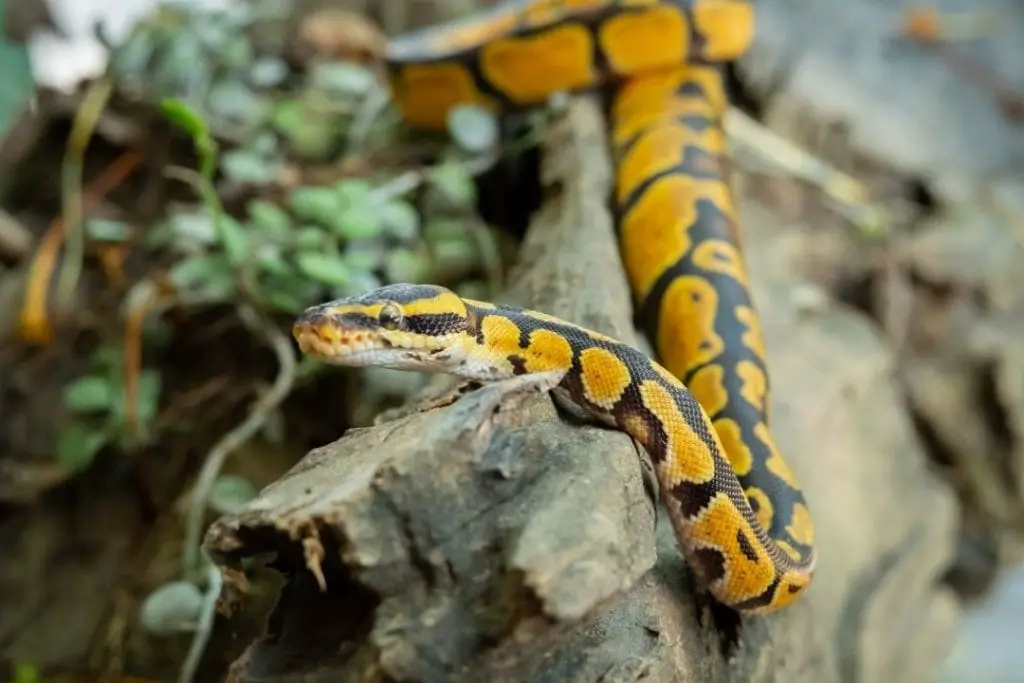
There are a number of factors that affect longevity in ball pythons. The single biggest factors are reducing stress for your snake and providing a proper environment. Stress can weaken the immune system and may cause long-term damage.
Making sure your snake feels secure is essential. Your snake will want to hide during the day and explore at night. It needs to be able to choose how warm it wants to be and have access to plenty of humidity.
You will need to keep away potential predators such as other pets and people. You also need to keep the enclosure clean, offer healthy prey items, and avoid anything that can injure your snake. If you keep all this in mind, your snake will stay healthier and live longer.
You may have heard that power-feeding will make your snake grow longer faster. This is true, but it can cause stress to organs that will mean your beloved pet passes away sooner.
Keeping a steady diet will let your snake grow at a healthy rate. Some people report success with varying feeding times and prey size to better mimic wild prey availability.
So long as your snake is growing steadily or maintaining weight, this shouldn’t hurt it in the long term. Another thing to note is the importance of regular check-ups.
Reptiles as a whole are still relatively undocumented. Ball pythons are the most well-studied of snakes, but it is still unclear what we need to look for in their long-term health.
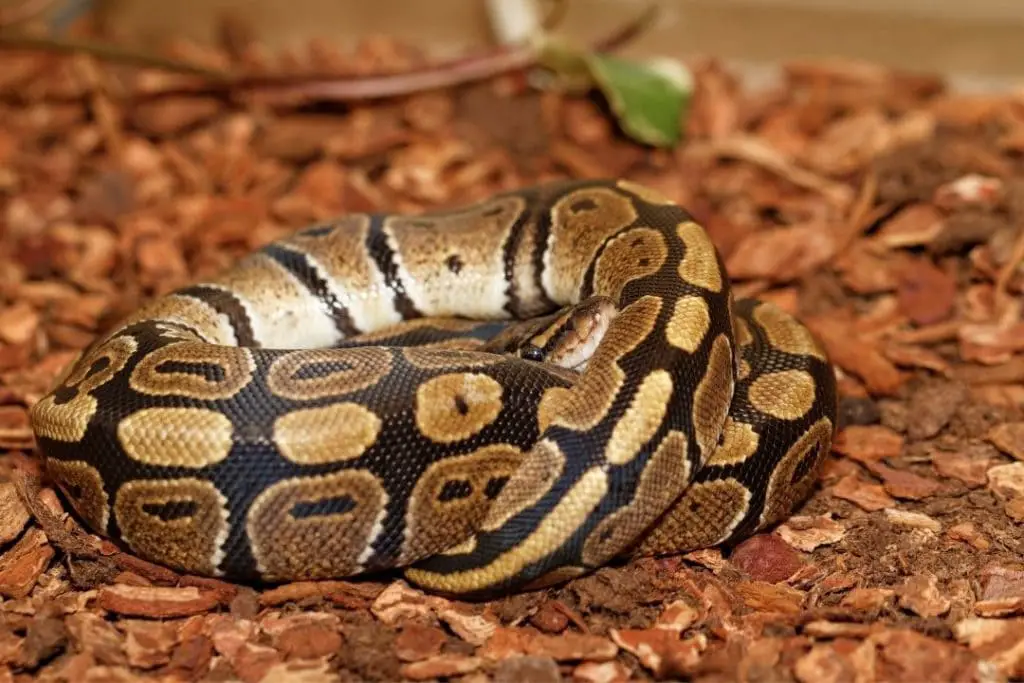
This study looks at longevity in reptiles. One of the most important points is the importance of regular check-ups and tests even while the snake is young. By establishing what is normal for your snake while it is young and healthy, your vet will know what to look for as your snake ages.
They can compare blood test results and imaging to ensure your snake is healthy. Yearly check-ups are the absolute minimum. Going twice or more a year while your snake is young can establish a good pattern of health.
Thankfully, more studies are done every year on snake care. This will help make sure your snake can be kept healthy without the stress of heading to the vet.
Until we understand the baseline of ball python health, regular check-ups are still the best practice.
Learning how to watch for signs of illness and stress in your snake is very important as well. You will learn over time what is normal for your snake.
Keeping an eye on how often your snake urinates or defecates will help you notice if there is a change. Sudden changes in behavior or elimination are one of the earliest signs of illness in ball pythons.
If your snake is suddenly active during the day when they normally sleep, or it goes on a food strike even with its favorite prey, then you will know something is off and look to fix it quickly.
Looking for changes in color, respiration, and body condition will all help alert you to health concerns early. Most problems in snakes can be fixed if they are caught early enough.
This can be challenging since snakes instinctively hide signs of illness. By knowing your snake and how snakes behave in general, you will be able to catch changes as soon as they happen.
Signs of Aging
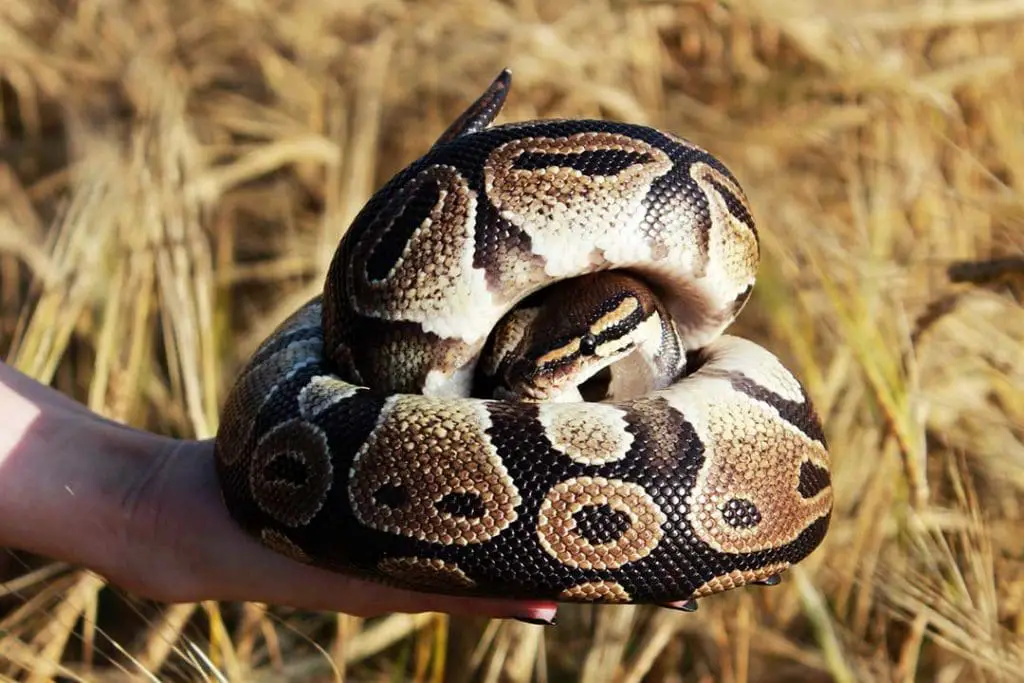
If you adopted an older snake, it is a good idea to know what an older snake looks like. There tend to be few visual signs of aging in snakes. Older snakes are much denser than younger snakes.
Older snakes also go on longer feeding strikes than younger snakes. A snake that is over 18 may go on feeding strikes that can last for 4-6 months, particularly during winter.
They may start hiding all the time or never hide anymore. It all depends on the animal. Many older snakes lose muscle tone as they age, particularly right before they pass away.
Many owners have noted that elderly ball pythons will refuse to eat in the months before they pass, but the snake will not lose much weight.
Conclusion
Ball pythons live for 20-30 years, but your snake may live to see 40 with good care. Learn your snake and keep up-to-date on proper care and your pet will be with you for decades.
If you have any thoughts or questions, please leave them in a comment below.
